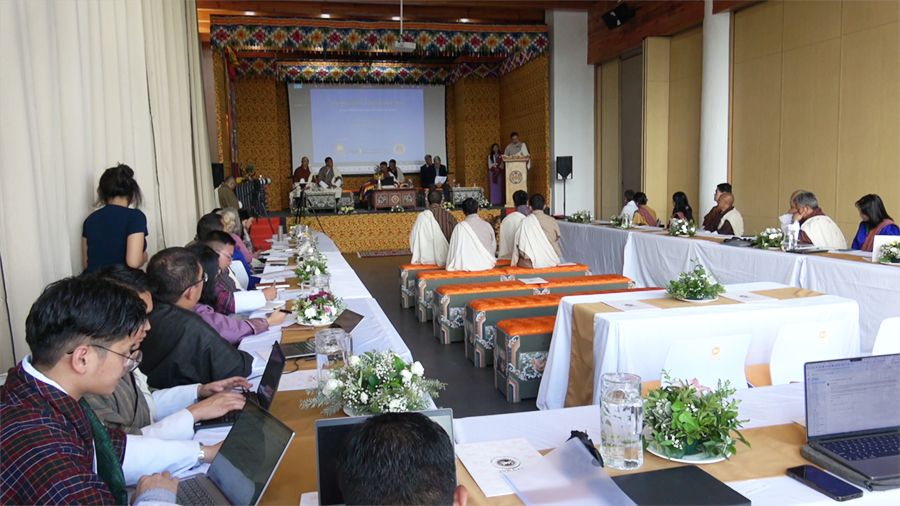
Bringing together legal experts, environmentalists, policymakers, and activists from around the world, a two-day Climate Justice workshop is underway in Paro. The workshop aims to make the participants more aware of how serious the climate crisis is and assess whether global and national actions have been enough. It also explores legal options, especially using the International Court of Justice to achieve climate justice. The concept of climate justice emphasises that the responsibility for addressing climate change should be divided according to who is contributing most to the problem.
 Currently, those who have least contributed to the climate crisis are suffering the most from its effects.
Currently, those who have least contributed to the climate crisis are suffering the most from its effects.
Countries, industries, businesses, and people who have become rich from emitting large amounts of greenhouse gases have a responsibility to help those affected by climate change, particularly the most vulnerable countries and communities that have contributed very little to the problem.
The meeting highlighted that global efforts to fight climate change have been ineffective with climate conferences failing to make real progress.
As a result, participants discussed using legal actions, such as taking companies or countries that are major contributors to climate change to international courts as a way to protect vulnerable communities.
The workshop will also look at the challenges and benefits of this legal approach for Bhutan.
“While there can be social, political and financial implications, at the end of the day all things result in a legal structure. So, that is why we think that leveraging and being stronger on our front with legal aspects is what is going to drive our achievement of climate justice or for that matter any justice,” said Tashi Tshomo, project officer at Climate Change and Environmental Law Centre, Jigme Singye Wangchuck School of Law.
“A group of students have done extensive research on this aspect and we had lots of questions than answers. One crucial aspect that we came across through our research was the diplomatic ties. If Bhutan were to take a case in the International Court of Justice and sue another country, how would our diplomatic ties be, would there be benefits over suing or would there be losses? So, this is one of the most important findings we have had and we are burning with passion to ask the experts if Bhutan should take the stand,” said Pema Choki, a participant from Jigme Singye Wangchuck School of Law.
“For Bhutan, climate justice is about the right to development, to industrialise, our rights to create economic opportunities without a lot of constraints that we are seeing under the environment and climate negotiations. So, in our context, climate justice is creating the economic opportunities and the right to development for our country and our people,” said Sonam Tashi, director at the Department of Environment and Climate Change.
The Jigme Singye Wangchuck School of Law in collaboration with the Bar Council of Bhutan and Georgetown Institute of Open and Advanced Studies is hosting the workshop with 65 participants.
Namgay Wangchuk, Paro
Edited by Sonam Pem








